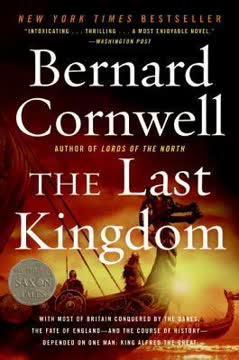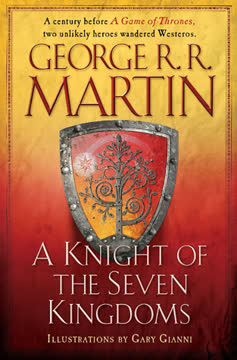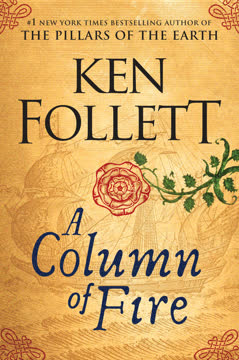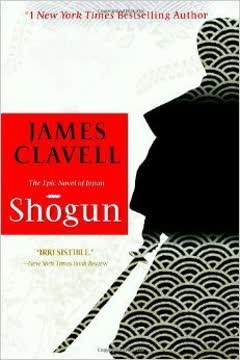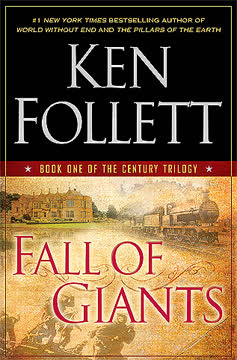Plot Summary
Ordinary Days, Sudden Violence
Uhtred, lord of Buccingahamm, begins his day with the ordinary business of culling sheep, but the calm is shattered by an ambush. Hunted by outlaws, Uhtred's instincts and the loyalty of his shepherd and dogs save him. The attack is not random; it is a paid attempt on his life, hinting at deeper political intrigue. This sudden violence disrupts the illusion of safety and foreshadows the instability threatening the land. Uhtred's world is one where peace is always temporary, and every day can turn from routine to chaos in a heartbeat. The emotional undercurrent is one of suspicion, vigilance, and the ever-present knowledge that enemies, both known and hidden, are never far away.
The Magic Fish and Treachery
Uhtred is summoned to negotiate a treaty between Alfred's Wessex and Eohric's East Anglia, carrying a relic—a "magic fish"—as a gift. The mission is fraught with tension: Alfred is dying, his son Edward is untested, and the Danes are restless. Uhtred senses the political maneuvering beneath the surface, as old friends and enemies alike jockey for power. The "magic fish" becomes a symbol of both faith and farce, highlighting the absurdities and dangers of diplomacy in a fractured land. Uhtred's loyalty is tested, and he is forced to navigate a web of shifting allegiances, all while knowing that betrayal could come from any direction.
Northward Shadows, Southward Plots
Uhtred rides north to probe the intentions of the powerful Danes, Sigurd and Cnut, and to test the loyalty of Mercian lords. He discovers that peace is bought with tribute and that old enemies are never truly gone. The land is tense, with rumors of Danish armies gathering and Mercian nobles like Beornnoth and his son Beortsig playing both sides. Uhtred's own household is a microcosm of the larger conflict: divided, suspicious, and haunted by past betrayals. The emotional tone is one of unease, as Uhtred realizes that the next war will be decided as much by treachery as by swords.
The Sorceress's Prophecy
Driven by uncertainty, Uhtred seeks out Ælfadell, a feared sorceress, hoping for a glimpse of the future. The encounter is harrowing: Uhtred is drugged, humiliated, and forced to confront his deepest fears. Ælfadell's prophecy is cryptic and ominous—seven kings will die, Wessex will fall, and the Saxon will destroy what he loves. Uhtred is left shaken, unsure whether he has glimpsed fate or been manipulated by Danish politics. The emotional arc is one of vulnerability and dread, as Uhtred faces the limits of his power and the possibility that destiny is not his to command.
Yule Ambush and Burning Bridges
Uhtred's enemies attempt to lure him into an ambush under the guise of a diplomatic mission. Sensing danger, he turns the tables, burning Danish ships and escaping a carefully laid trap. The episode is a dance of deception, with Uhtred using cunning and violence to survive. The burning of the bridge at Eanulfsbirig is both literal and symbolic: Uhtred severs the path of his pursuers and signals that peace is over. The emotional tone is fierce and defiant, as Uhtred reclaims agency and reminds friend and foe alike that he is not easily cornered.
The Gathering Storm
As Alfred's health fails, the kingdom holds its breath. Uhtred's household is fractured by old grievances, and Mercia is divided between those loyal to Wessex and those who yearn for independence. Sihtric, Uhtred's trusted man, is revealed as a spy, and the lines between friend and enemy blur. The emotional atmosphere is tense and mournful, as everyone waits for the old order to die and the new to emerge. The sense of impending chaos is palpable, and Uhtred knows that the next battle will be for the soul of England itself.
Alfred's Last Days
Uhtred is summoned to Alfred's bedside, where the king, frail but sharp, seeks reassurance about the future. Alfred worries about his son Edward's ability to rule and the ambitions of his nephew Æthelwold. Uhtred, torn between admiration and resentment, promises to support Edward and is finally granted land as a reward for his years of service. The emotional core is one of bittersweet closure: Alfred's death marks the end of an era, and Uhtred is left to carry the burden of the king's dream—a united England—into an uncertain future.
The King Is Dead
Alfred's death plunges Wessex into uncertainty. Edward is crowned, but his claim is contested by Æthelwold, who kidnaps Æthelflaed in a desperate bid for power. The court is rife with intrigue, and Uhtred must navigate a maze of suspicion, betrayal, and shifting allegiances. The emotional tone is one of grief and anxiety, as the stability Alfred built threatens to unravel. Uhtred's loyalty is tested anew, and the fate of the kingdom hangs in the balance.
The Struggle for Wessex
Æthelwold's rebellion, backed by Danish lords, ignites a new war. Uhtred and his allies race to intercept the rebels, but the land is awash with uncertainty. The Danes, sensing opportunity, gather their forces, and Mercia is torn between competing loyalties. Uhtred's own household is a battleground of trust and suspicion. The emotional arc is one of desperation and resolve, as Uhtred fights not just for survival, but for the future of England.
The War That Passeth Understanding
The Danish invasion is marked by feints, false starts, and shifting allegiances. Uhtred is forced to play a deadly game of cat and mouse, never sure who to trust. The Danes are divided, their leaders at odds, but their numbers are overwhelming. Uhtred's attempts to trap them are thwarted by the indecision of Edward and the treachery of supposed allies. The emotional tone is one of frustration and exhaustion, as Uhtred struggles to impose order on chaos.
The Trap at Cracgelad
Uhtred lures the Danes to Cracgelad, hoping to trap them between the armies of Wessex and Mercia. But Edward, swayed by cautious advisers, refuses to attack, and the opportunity slips away. The Danes ravage the countryside, and Uhtred is left to watch helplessly as the war drags on. The emotional core is one of bitterness and regret, as Uhtred sees the cost of indecision and the fragility of hope.
Betrayal at Huntandon
As the armies retreat, Ealdorman Sigelf of Cent betrays Wessex, conspiring with the Danes to seize Lundene. Uhtred, sensing the danger, acts swiftly—turning Sigelf's own men against him in a night attack. The battle is chaotic and brutal, with Uhtred's cunning and Osferth's leadership saving the day. The emotional arc is one of betrayal and grim determination, as Uhtred realizes that the greatest threats come from within.
Shield Wall at Dawn
Uhtred and the remnants of the army form a shield wall against overwhelming Danish numbers. The battle is savage, with leaders on both sides falling. Uhtred kills Eohric and Sigurd's son, but the Danes threaten to encircle and destroy the Saxons. At the last moment, Edward's reinforcements arrive, turning the tide. The emotional climax is one of exhaustion, triumph, and sorrow, as the cost of victory becomes clear.
The End of Æthelwold
In the aftermath of battle, Uhtred confronts Æthelwold, the would-be king, and kills him. With Æthelwold's death, Edward's claim is secure, and the immediate threat to Wessex is ended. The emotional tone is one of grim satisfaction and relief, but also of mourning for the friends and dreams lost along the way. Uhtred has helped preserve Alfred's vision, but at great personal cost.
The Sword of the Saxons
Edward is crowned, and Uhtred, battered but unbroken, is recognized as the sword of the Saxons. The Danes are beaten back, but the struggle for England is far from over. Uhtred's journey is one of resilience, loyalty, and the relentless pursuit of a dream that is not yet fully realized. The emotional resolution is one of hard-won hope, as Uhtred stands ready to fight for the future of England, whatever it may bring.
Characters
Uhtred of Bebbanburg
Uhtred is the central figure—a Saxon by birth, raised by Danes, forever caught between two worlds. His loyalty is to himself, his family, and those he loves, but he is repeatedly drawn into the service of Wessex by fate and necessity. Uhtred is fiercely independent, skeptical of religion, and haunted by loss and betrayal. His psychological complexity lies in his ability to inspire loyalty while remaining emotionally guarded. Over the course of the story, he evolves from a cynical survivor to a leader who, despite his doubts, becomes the sword of the Saxons and the protector of Alfred's dream.
Alfred the Great
Alfred is the architect of Wessex's survival and the dream of a united England. He is wise, pious, and often severe, but also deeply human—plagued by illness, doubt, and the knowledge that his legacy is fragile. His relationship with Uhtred is fraught: a mix of admiration, mistrust, and mutual dependence. Alfred's death marks the end of an era, and his final acts—rewarding Uhtred, securing Edward's succession—set the stage for the next generation's struggles.
Edward of Wessex
Edward begins as an untested prince, overshadowed by his father and beset by personal scandal. He is cautious, sometimes indecisive, and easily swayed by advisers, especially the church. Yet, under pressure, he shows resilience and a capacity for growth. His relationship with Uhtred is complex—part gratitude, part suspicion. By the end, Edward emerges as a true king, willing to listen, learn, and fight for his realm, but still haunted by the burdens of leadership.
Æthelflaed
Æthelflaed is intelligent, courageous, and beloved by her people. Trapped in a loveless marriage to Æthelred, she finds purpose in defending Mercia and supporting Uhtred. Her psychological strength is matched by vulnerability—she is torn between duty, love, and the expectations of her family. Æthelflaed's leadership and defiance are crucial to the survival of Wessex and Mercia, and her relationship with Uhtred is a source of both solace and conflict.
Æthelwold
Æthelwold is Alfred's nephew and Edward's rival—a man of ambition but little substance. He is manipulative, self-pitying, and ultimately doomed by his own inadequacy. His alliances with the Danes and his kidnapping of Æthelflaed are desperate gambits that end in failure. Æthelwold's psychological arc is one of self-destruction, and his death is both a relief and a warning about the dangers of weak leadership.
Sigurd and Cnut
Sigurd and Cnut are powerful, ambitious, and cunning. They represent the ever-present danger of Danish conquest, but are also divided by their own ambitions and rivalries. Sigurd is brutal and vengeful, while Cnut is a master swordsman and strategist. Their psychological complexity lies in their ability to inspire fear and loyalty, but also in their inability to unite the Danes fully. Their presence drives much of the conflict and keeps Uhtred—and England—on a knife's edge.
Haesten
Haesten is a recurring antagonist—never the most powerful, but always dangerous. He is a master of survival, switching allegiances and using cunning to stay alive. Haesten's psychological profile is that of a pragmatist: he values self-preservation above all, and his betrayals and alliances are always calculated. He is a mirror to Uhtred's own adaptability, but without Uhtred's loyalty or honor.
Sihtric
Sihtric is Uhtred's man, but his past and family ties make him a figure of suspicion. His role as a spy and his eventual return to Uhtred's side highlight the theme of trust and betrayal. Sihtric's psychological struggle is between loyalty to his lord and the pull of his heritage. His journey reflects the larger conflict between Saxon and Dane, and the possibility of reconciliation—or ruin.
Osferth
Osferth is Alfred's illegitimate son, torn between the church and the sword. He is serious, thoughtful, and often serves as Uhtred's conscience. Osferth's psychological arc is one of acceptance—of his lineage, his faith, and his place in the world. He is a stabilizing force in Uhtred's household, and his growth mirrors Edward's own journey from uncertainty to leadership.
Father Cuthbert
Father Cuthbert is an eccentric, clever, and endearing priest who becomes Uhtred's chaplain. He is both a source of humor and unexpected wisdom, often blurring the lines between faith and superstition. Cuthbert's psychological role is to challenge Uhtred's skepticism and to humanize the church, showing that faith can coexist with doubt and that even the most unlikely allies can make a difference.
Plot Devices
Prophecy and Fate
The story is haunted by prophecies—Ælfadell's ominous predictions, the angels at Natangrafum, and the ever-present sense of wyrd (fate). These prophecies drive characters to action or inaction, but are always ambiguous, open to interpretation, and often manipulated for political ends. The tension between fate and free will is central: Uhtred is both a believer in destiny and a defier of it, and the narrative structure uses prophecy to foreshadow, mislead, and deepen the psychological stakes.
Betrayal and Shifting Allegiances
The plot is propelled by betrayals—attempts on Uhtred's life, Sihtric's apparent treachery, Sigelf's duplicity, and the ever-changing loyalties of Mercian and Danish lords. Foreshadowing is used to build suspense, as characters' true intentions are often hidden until the crucial moment. The narrative structure mirrors the uncertainty of the times: no alliance is permanent, and survival depends on adaptability and cunning.
The Shield Wall
The shield wall is both a literal and symbolic device: it is where reputations are made, leaders are tested, and the fate of kingdoms is decided. The narrative returns again and again to the terror, chaos, and intimacy of battle, using it as a lens to explore character, loyalty, and the cost of ambition. The shield wall is also a metaphor for community—fragile, easily broken, but essential for survival.
The Dying King and the Succession Crisis
Alfred's death and the struggle for succession are the central plot engines. The narrative structure uses the king's decline to heighten tension, as every character must choose sides and every decision is fraught with consequence. The succession crisis is both personal and political, forcing characters to confront their own ambitions, fears, and loyalties.
The False Peace
The long period of uneasy peace is a narrative device that builds suspense and frustration. It allows for character development, the deepening of psychological themes, and the slow revelation of hidden plots. The false peace is repeatedly shattered by violence, reminding readers that stability is always temporary and that the real battle is always just over the horizon.
Analysis
Bernard Cornwell's Death of Kings is a masterful exploration of the chaos, uncertainty, and ambition that defined the birth of England. Through the eyes of Uhtred—a man forever caught between worlds—the novel interrogates the nature of loyalty, the burden of leadership, and the tension between fate and free will. The story is driven by the interplay of prophecy and pragmatism: characters are haunted by omens and dreams, yet must make hard choices in a world where trust is rare and betrayal is common. The shield wall, both as a battlefield and a metaphor, encapsulates the novel's central lesson: survival and greatness are forged in community, but that community is always fragile, always at risk. Cornwell's narrative is unsparing in its depiction of violence and loss, but it is also deeply human—filled with moments of humor, tenderness, and hope. The ultimate lesson is that history is made not by destiny alone, but by the courage, cunning, and resilience of those who refuse to surrender, even when the odds are overwhelming. In the end, Death of Kings is both a lament for a lost world and a celebration of the enduring dream of unity—a dream that, like Uhtred himself, survives against all odds.
Last updated:
Review Summary
The Last Kingdom receives praise for its vivid historical detail, compelling characters, and thrilling battle scenes. Readers appreciate Cornwell's skillful portrayal of 9th century England and the complex relationship between Saxons and Danes. Many find Uhtred to be a captivating protagonist, torn between two cultures. The book is lauded for its engaging storytelling, authentic dialogue, and well-researched historical elements. While some critics find the battle scenes repetitive, most agree that Cornwell excels at bringing the era to life and crafting an enthralling narrative.
